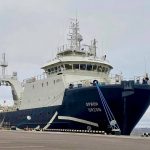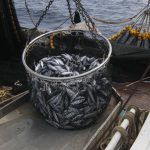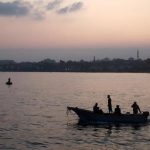Ghana appreciates that member countries of the United Nations Food and Agriculture Organisation (FAO) have agreed to adopt international guidelines aimed at limiting the impact of fishing on fragile deep sea fish species and habitats. This came to light after two years of preparation and negotiation with member countries. Ghana told that only this would help all the nations to do deep-sea fishing in a more dignified way.
It is told that the guidelines would provide a framework to guide the operations of member countries that are into deep-sea fishing to protect deep-sea fish species and habitats. It also outlines measures to be taken to identify and protect vulnerable ecosystems and provide guidance on the sustainable use of marine living resources in deep-sea areas.
According to the member countries they agreed on common point that fishing nations should assess the deep-sea fishing being undertaken by their fleets in order to determine if any significant adverse impacts are involved. Also, deep sea fishing activity should cease in any area where significant adverse impacts to vulnerable marine ecosystems are thought to be taking place.
The members also agreed that where deep sea fishing could be undertaken responsibly, more appropriate fishing methods should be used to reduce impacts on non-target species. Ghana is of view that managing deep-sea fisheries in high seas areas has always been difficult, since it requires multilateral solutions involving not only nations whose vessels are engaged in deep-sea fisheries but other interested countries as well.
Ichiro Nomura, Assistant Director General of FAO’s Department of Fisheries and Aquaculture, said that these guidelines represent one of the few practical instruments of this nature, and are a breakthrough in that they address both environmental and fisheries management concerns in an integrated manner.








